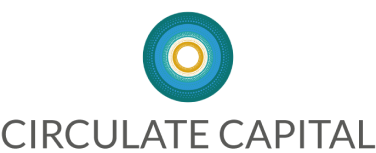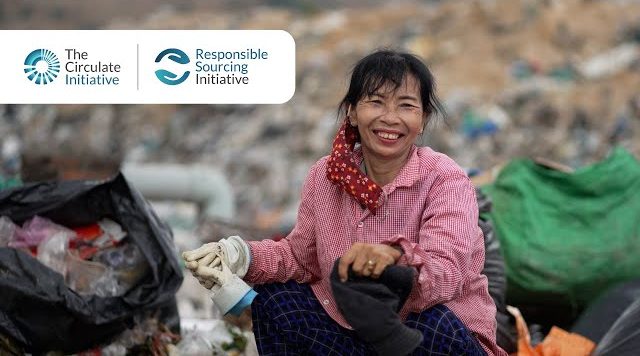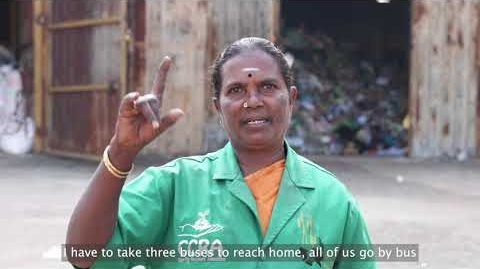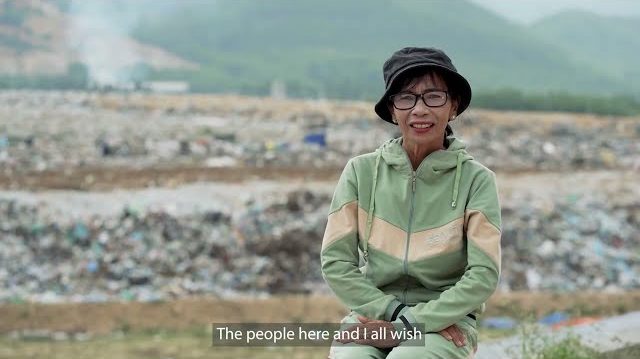Responsible Sourcing Initiative


Overview
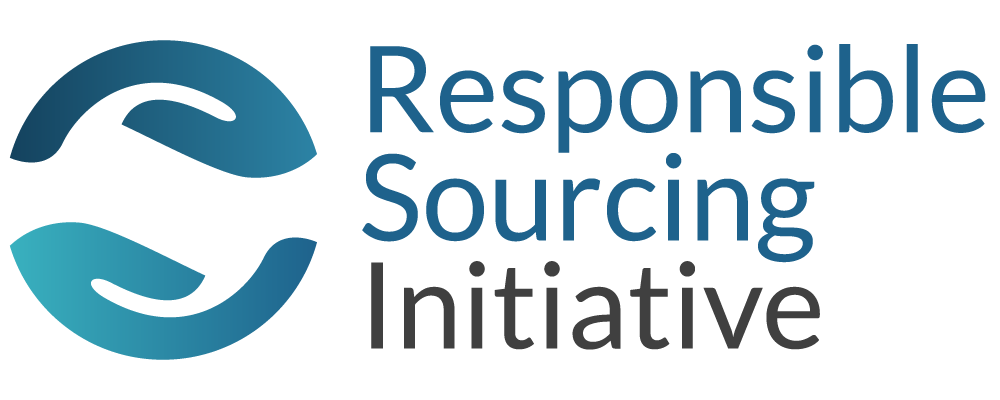
The Responsible Sourcing Initiative is a multi-year global program focused on uplifting informal waste workers and delivering responsibly sourced plastics while addressing the most pressing human rights issues in plastics recycling value chains.
Launched in 2023, the initiative mobilizes key stakeholders including global brands, investors, recycling and collection companies, and waste workers associations, to ensure that plastic waste supply chains not only support recycled plastics and advance a circular economy, but also respect the rights of informal workers.
The Responsible Sourcing Initiative will start implementation projects in four countries: India, Indonesia, Kenya, and Viet Nam.


OUR COLLECTIVE CHALLENGE
There are an estimated 20 million informal waste workers who account for roughly 60% of plastic collected globally.
Their experience is shaped by persistent marginalization including a lack of social safety nets, vulnerability to human rights abuses, gender inequality, child labor, and insufficient incomes which cannot be ignored in the broader pursuit of a circular economy for plastics. These human rights issues pose a fundamental risk to solving the plastic pollution crisis.
While multinational companies have made commitments to use higher volumes of post-consumer recycled (PCR) plastic, progress is slow to meet the collective target. Regulations to address this topic are increasingly being implemented such as Extended producer Responsibility (EPR) and new European Union (EU) regulations will require companies to evaluate and report on social and environmental impacts and risks in their supply chains. With companies demanding more recycled content, and due diligence and disclosure requirements rising, improving the human rights of informal waste workers in the value chain cannot be ignored anymore.
THE SOLUTION
The Responsible Sourcing Initiative is strategically designed to address the systemic barriers that prevent the widespread adoption of responsible sourcing practices in the recycled plastics value chain.
By mobilizing stakeholders across the value chain, we facilitate greater collaboration, alignment, and an understanding of the needs of all actors.
The first step will be to harmonize existing responsible sourcing definitions and frameworks and align on an evaluation tool. We will use this tool across implementation projects to evaluate the human rights practices before and after interventions. Using these results, we have created a framework that companies can use to monitor progress towards creating responsible supply chains for recycled plastics.
The Responsible Sourcing Initiative will catalyze a transformation that not only ensures environmental benefits but also promotes social equity and economic opportunities within the recycled plastics market.
Workstreams

Harmonize definitions and frameworks for responsible sourcing of recycled plastics and align on an evaluation tool.

Identify the most promising tools and approaches for traceability and transparency across the plastics recycling value chain.

Implement concrete projects with local partners that will improve human rights practices and measure progress in select locations.

Train recyclers, aggregators, and other stakeholders to better assess and improve human rights practices in the recycling value chain.

Measure and disseminate findings so that the project can be replicated in other markets.
Responsible Sourcing Outcomes

Standards
- Harmonized Responsible Sourcing framework adopted by 25+ brands, recyclers and aggregators.
- Global standards and certifications include responsible sourcing criteria and metrics based on the framework.

Value Chains
- >50,000* waste workers’ lives have improved and wages have increased.
- >100,000* tons of plastic waste responsibly sourced.*
- Increased traceability and transparency across the 4 plastic waste value chains.

Knowledge
- Increased awareness on Responsible Sourcing; trainings and toolkits publicly available.
- Policy influence towards fair & inclusive EPR regulations and principles.
- Increased data and transparency through geographic human rights assessments.
*To be defined in detail based on baseline assessment in phase 1 implementation projects based on full program budget


Objectives

Improve the livelihoods of at least 50,000 informal waste workers.

Secure the commitment of 25 global brands, investors, and recyclers.

Deliver at least 100,000 tonnes of responsibly-sourced, recycled plastic.

Collaborate with over 500 businesses and small enterprises that operate in the recycled plastics value chain.
Countries of Focus
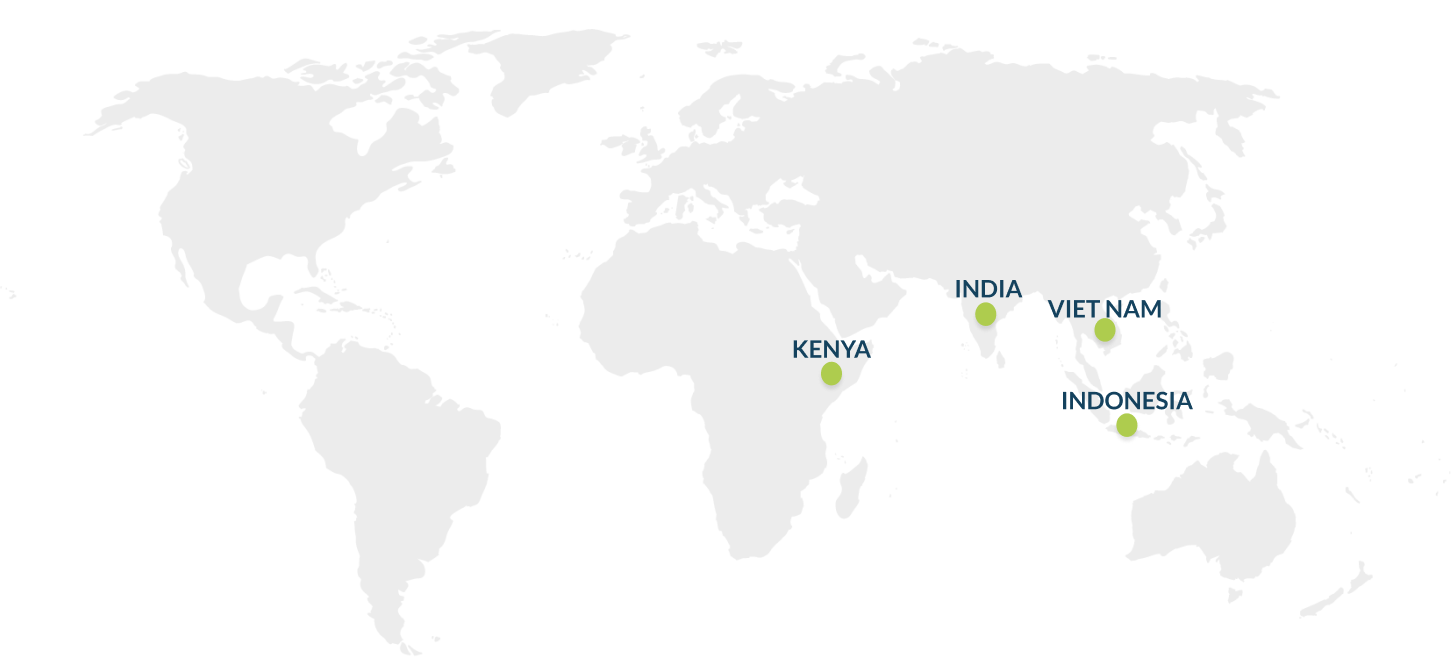
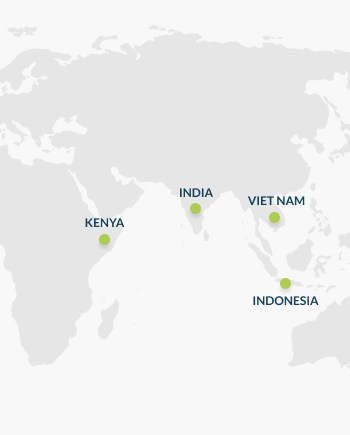
Partners
Resources
The Harmonized Responsible Sourcing Framework for Recycled Plastics
The Harmonized Framework offers a practical approach for all stakeholders to implement responsible sourcing practices in their value chain, informed by the needs and perspectives of informal waste sector workers and waste pickers.
Fair Circularity Principles
Shift’s 2022 Fair Circularity Principles adapt UN Guiding Principles on Business and Human Rights for the informal waste sector, focusing on corporate engagement in plastic packaging recycling.
The NextWave Plastics Framework for Socially Responsible Ocean-Bound Plastic Supply Chains
This framework highlights the role of 20 million waste pickers in 60% of 2016 global recycling and outlines the NextWave Plastics Framework for socially responsible ocean-bound plastic supply chains.
Responsible Sourcing in the Plastic Waste and Recycling Sector: Examples of Inclusive Practices in India
This report discusses responsible sourcing in India’s plastic waste sector, highlighting fair treatment, improved livelihoods for informal waste workers, company initiatives for transparency, and access to government services.
Findings from the Closing the Data Gap Challenge: Solid and Plastic Waste Assessment in Udaipur, India
This report emphasizes the need for reliable plastic waste data, detailing the Closing the Data Gap Challenge by the Alliance to End Plastic Waste and The Circulate Initiative, including a 2022 Udaipur assessment.
Leaving no one behind
This report highlights the informal waste sector’s role in mitigating plastic pollution and advocates for its integration into formal systems for a just transition, based on 2022 consultations and expert reviews.
A Seat at the Table - The Role of the Informal Recycling Sector in Plastic Pollution Reduction, and Recommended Policy Changes
This report overviews the informal recycling sector, its challenges, integration efforts, and policy recommendations for a just transition, highlighting its role in a circular economy and addressing plastic pollution.
IAWP’s Vision for a Just Transition for Waste Pickers under the UN Plastics Treaty
This report highlights the crises of inequality, climate change, and plastic pollution, emphasizing their impact on underserved communities and the need to include informal recycling workers in global responses for a just transition.
A living income for the informal waste sector
This report recommends the Global Plastics Treaty support informal waste workers through better waste management policies and the Fair Circularity Initiative to protect their rights and promote a just transition.
Annual Convening
The Responsible Sourcing Annual Convening brings together diverse stakeholders from across the value chain to share perspectives and success stories on how to incorporate human rights practices into plastics recycling supply chains.
Click on each image below to access key takeaways and photo book.
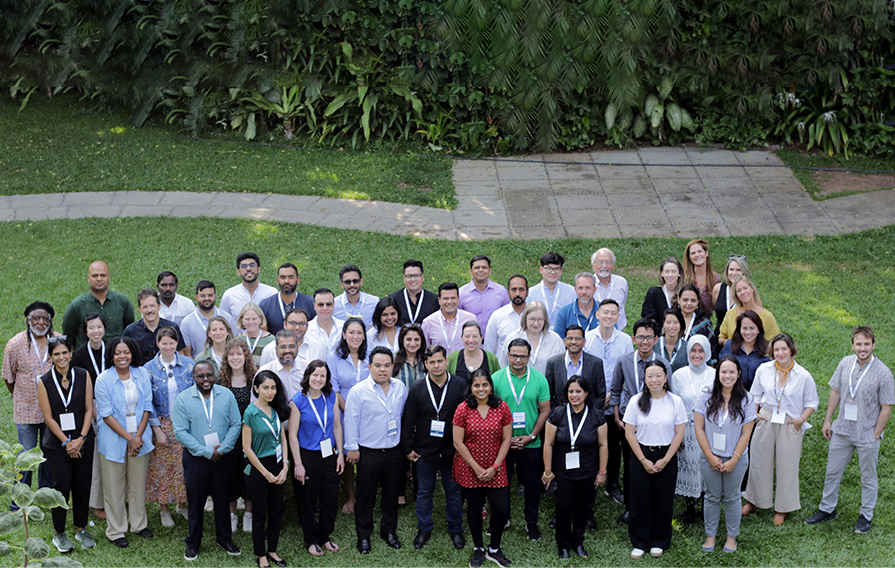
Bengaluru, 2023
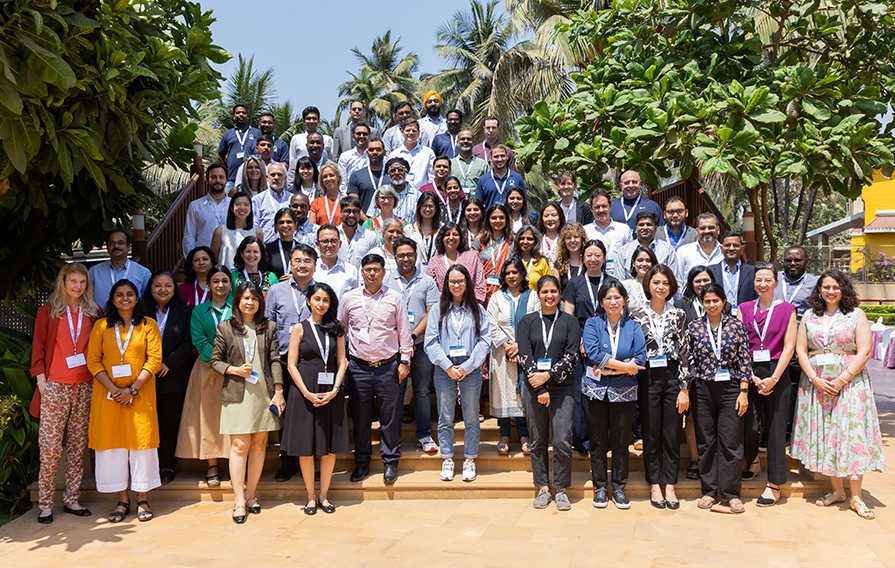
Mumbai, 2024
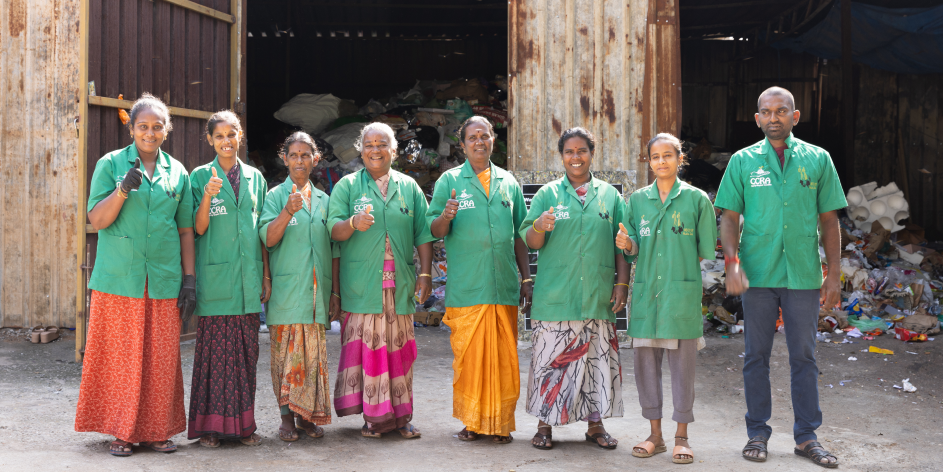

We are calling on governments, brands, investors, recyclers, aggregators and waste worker associations to drive collective action and embed responsible sourcing practices across the full value chain.


